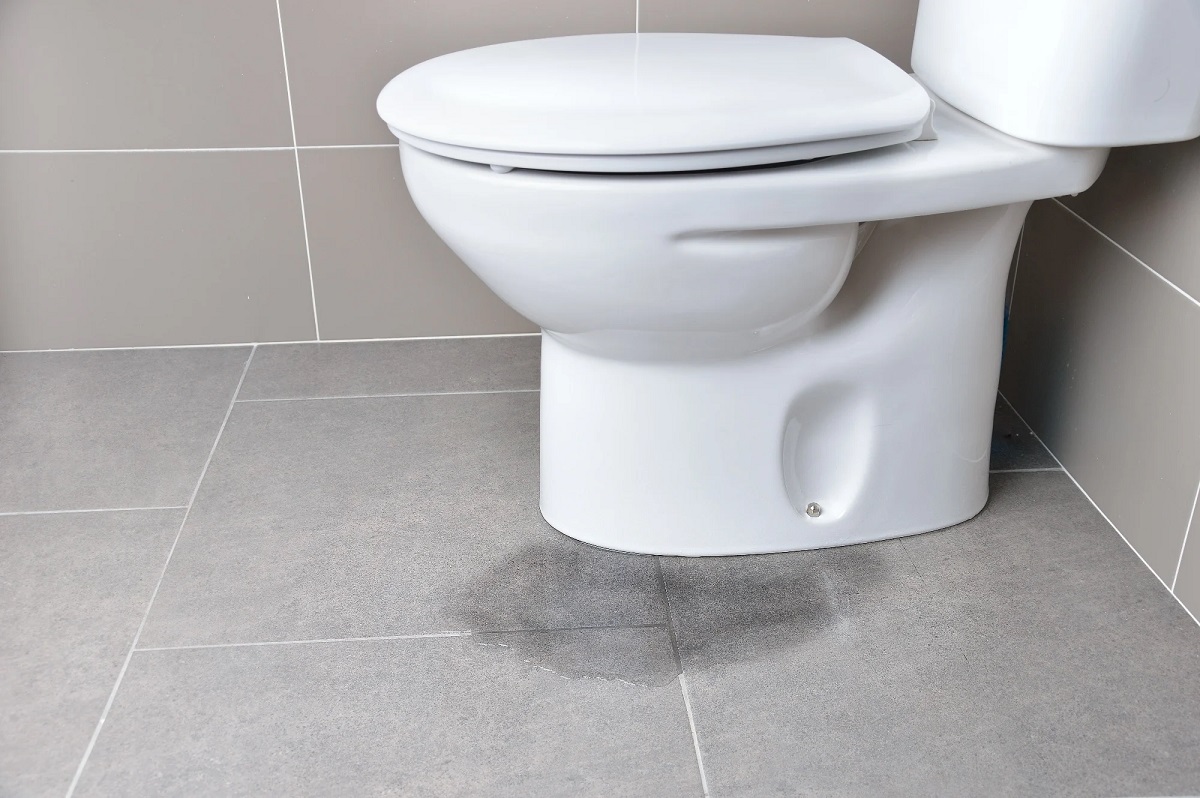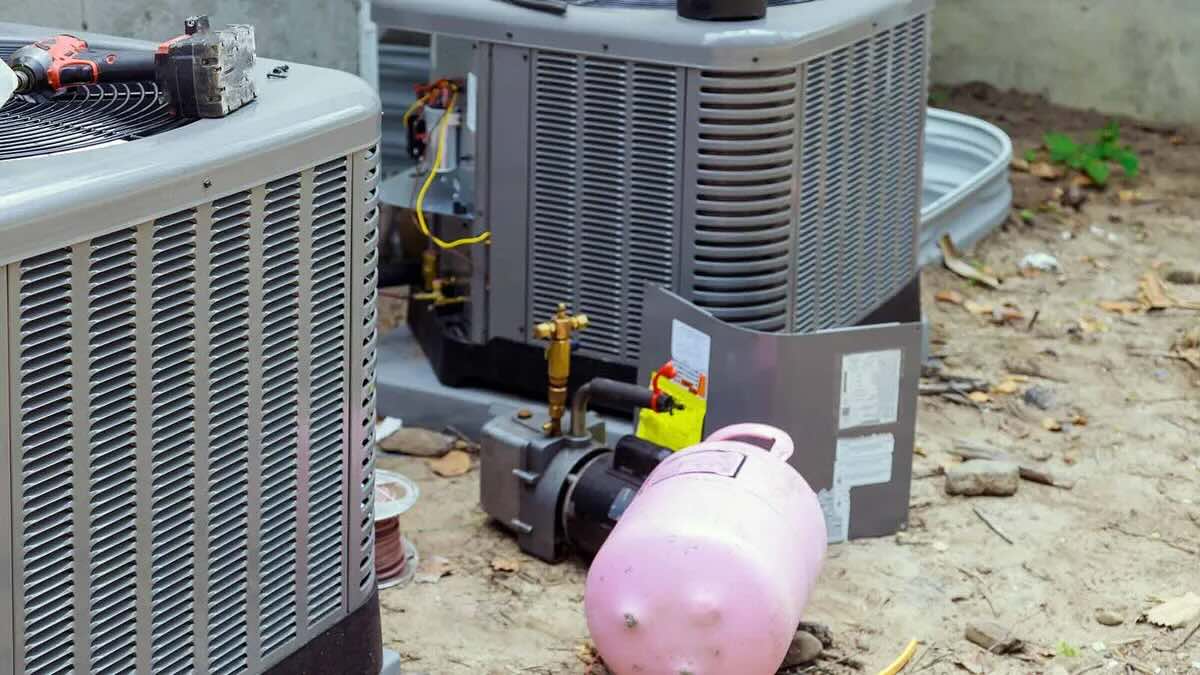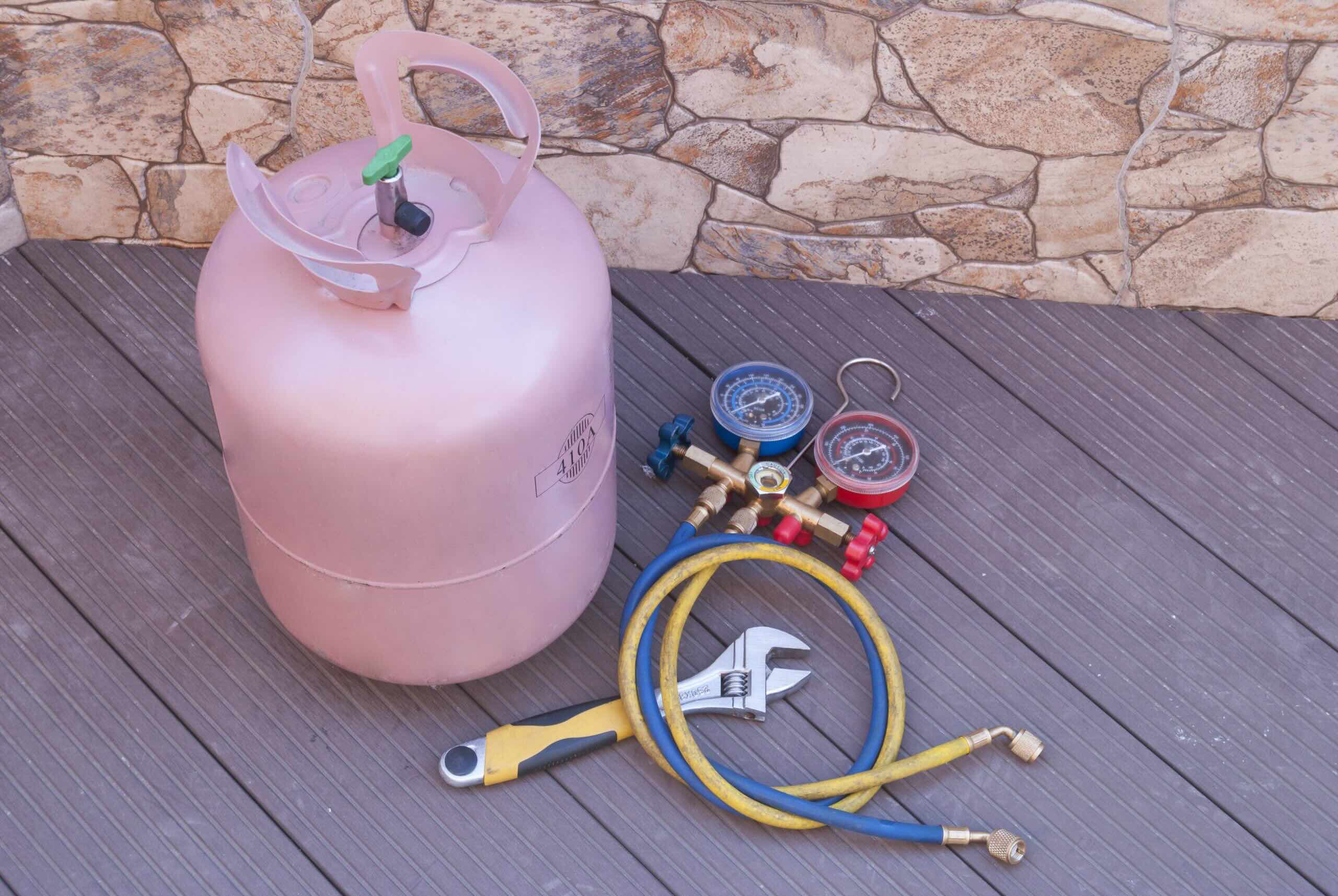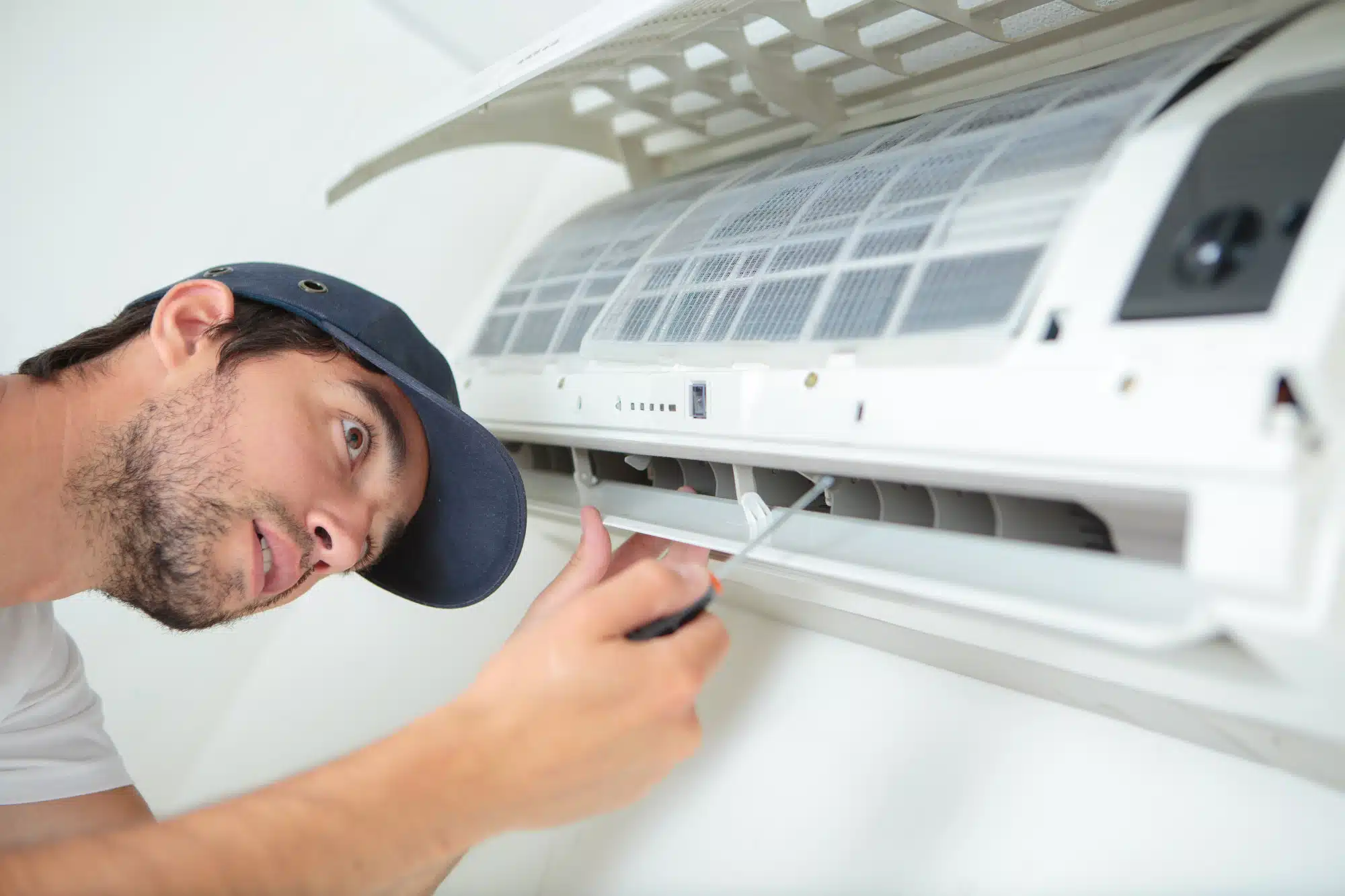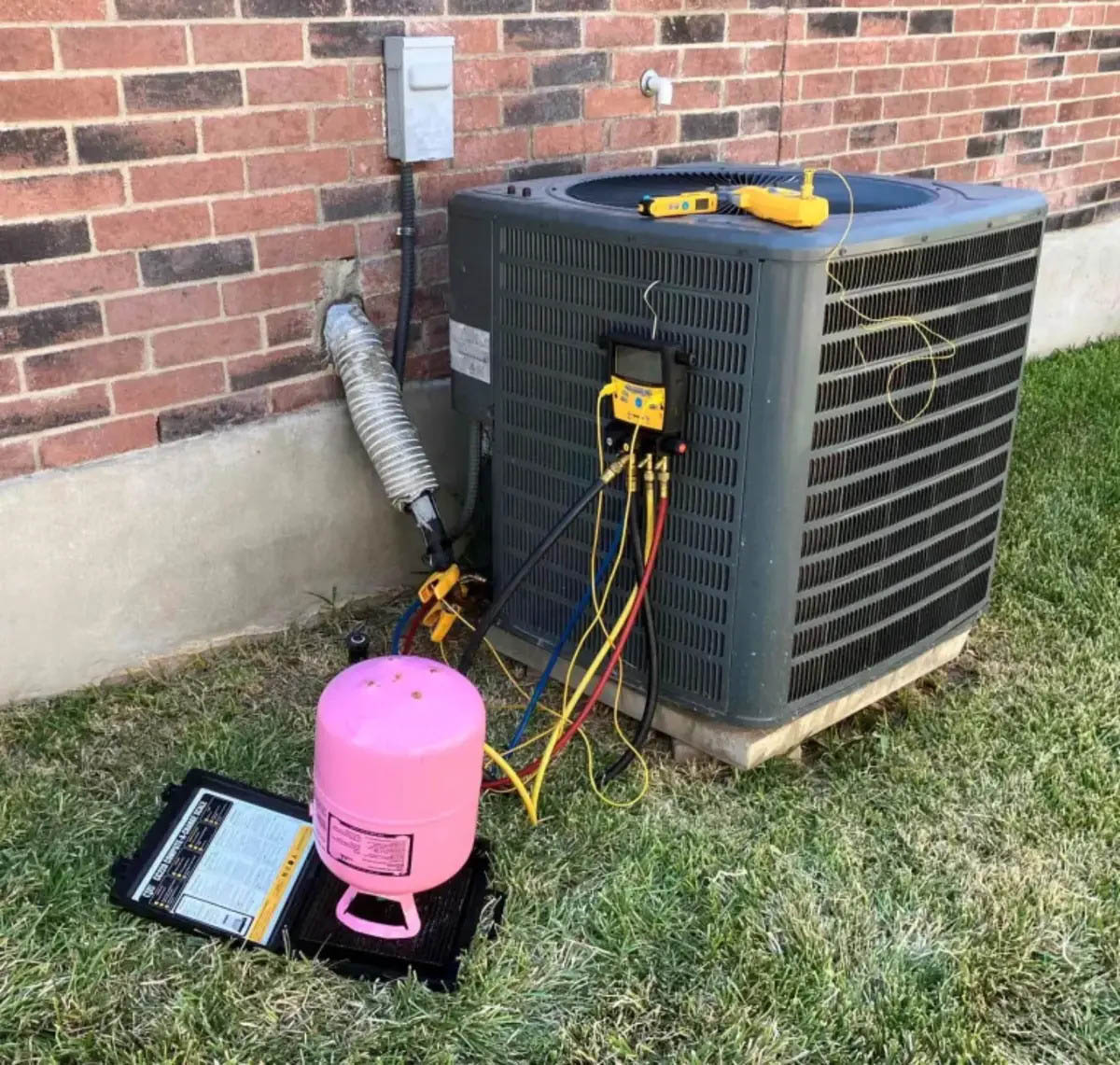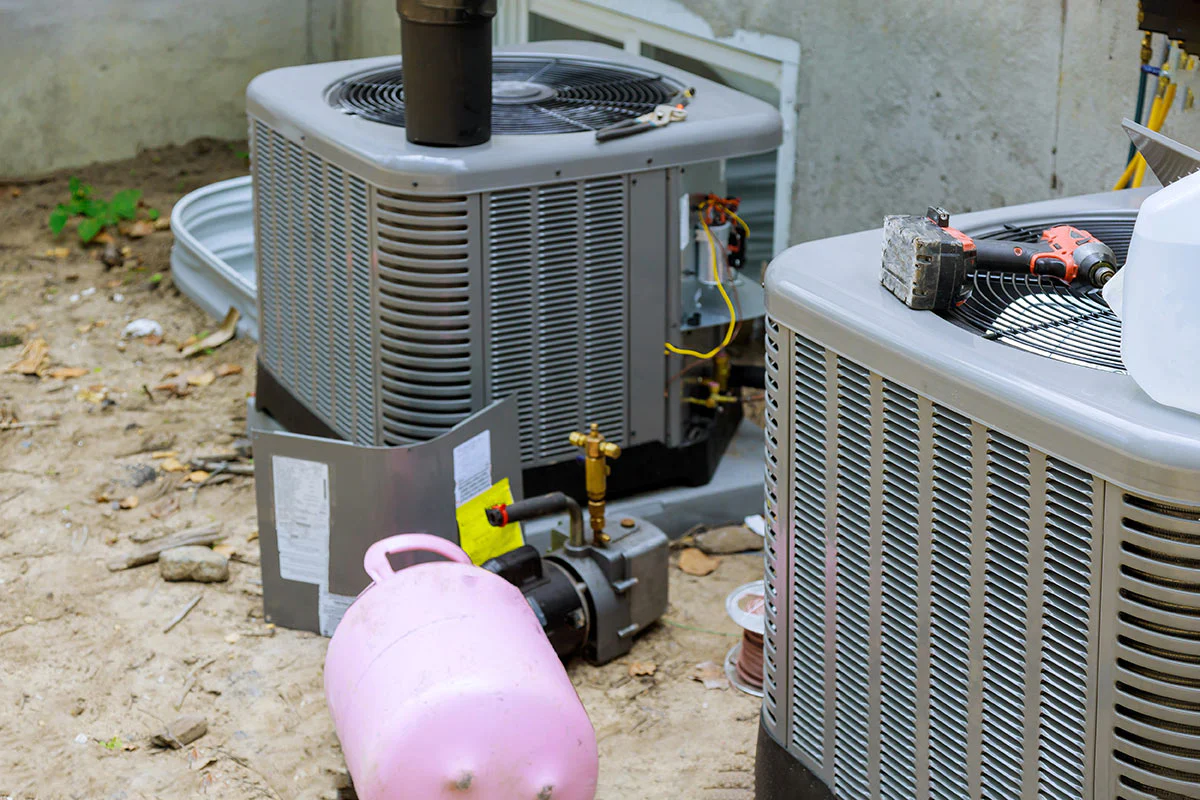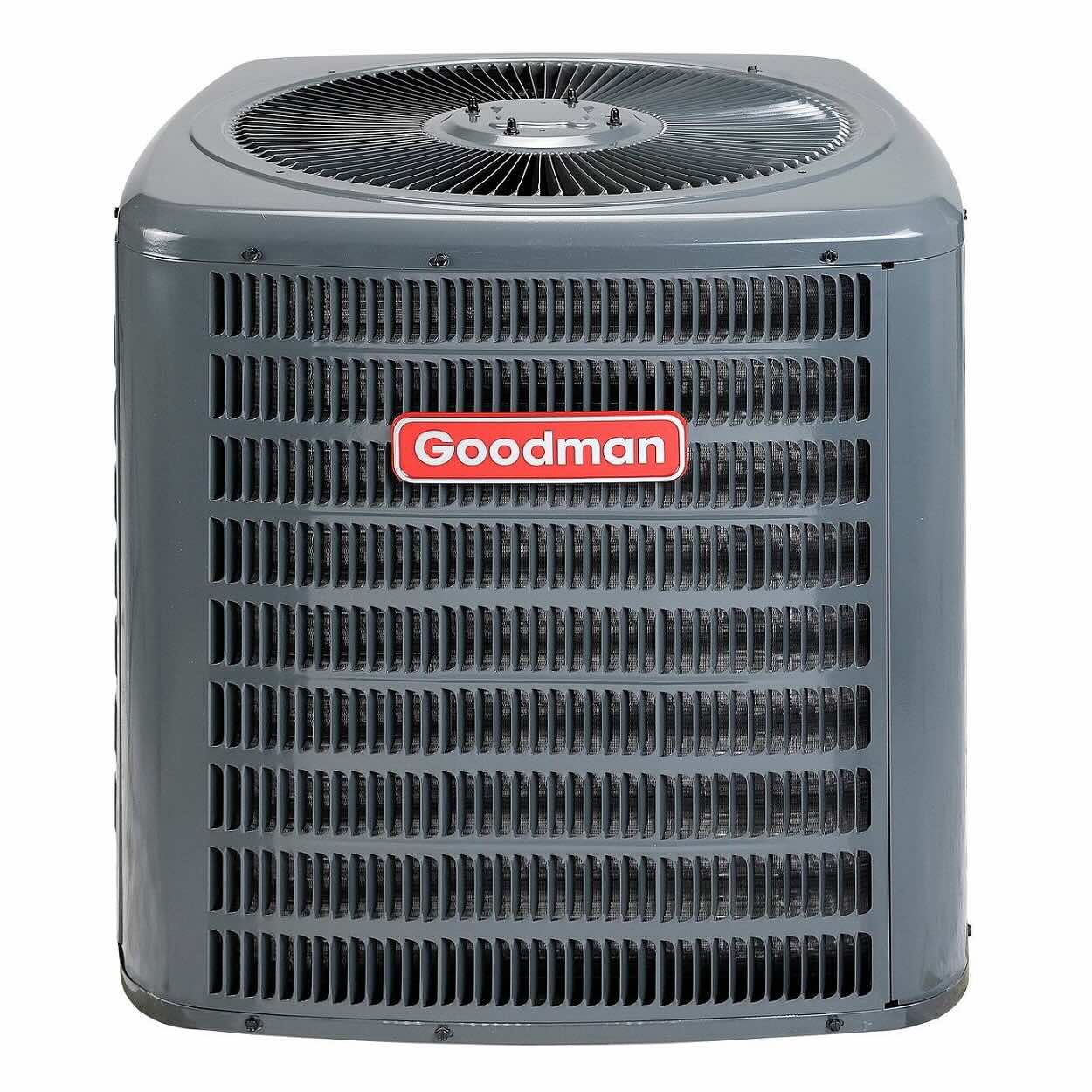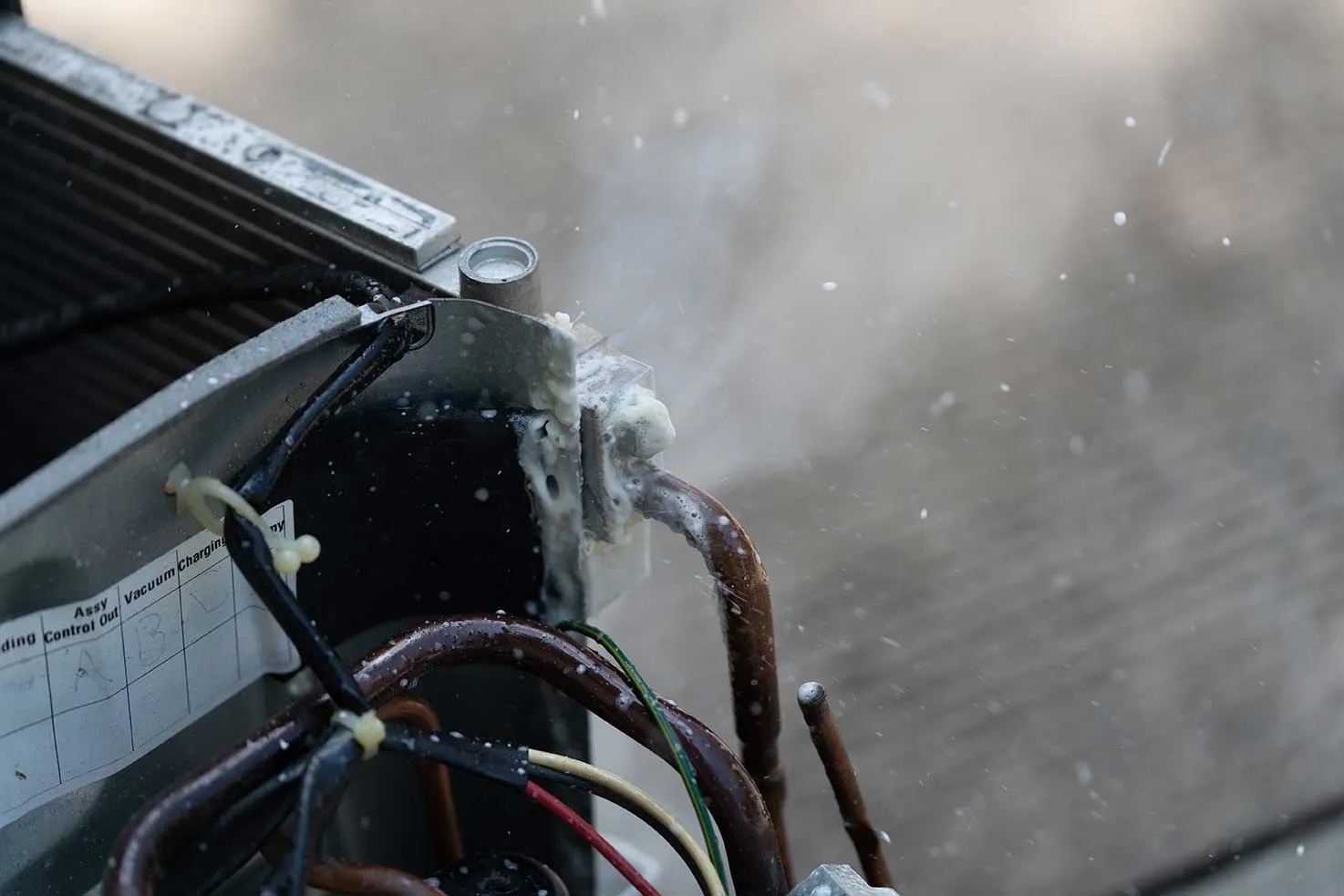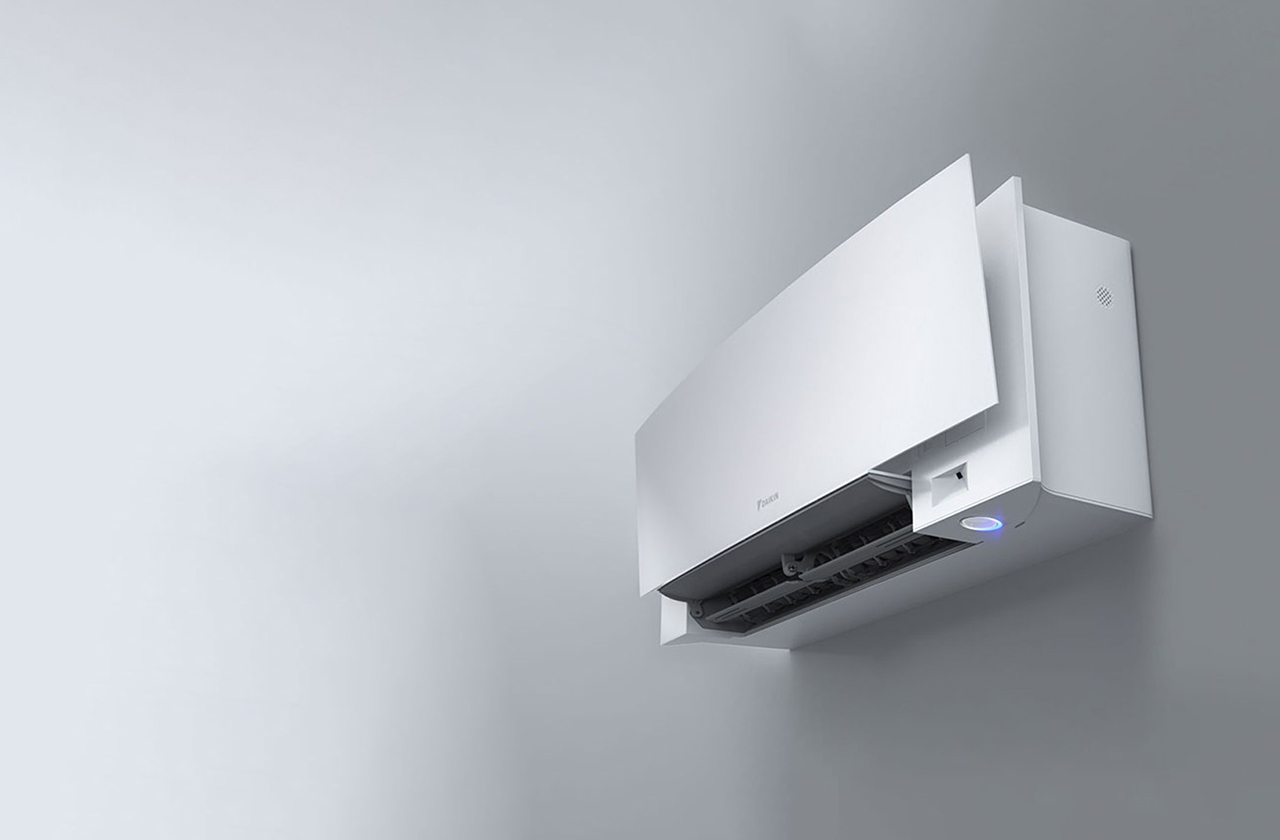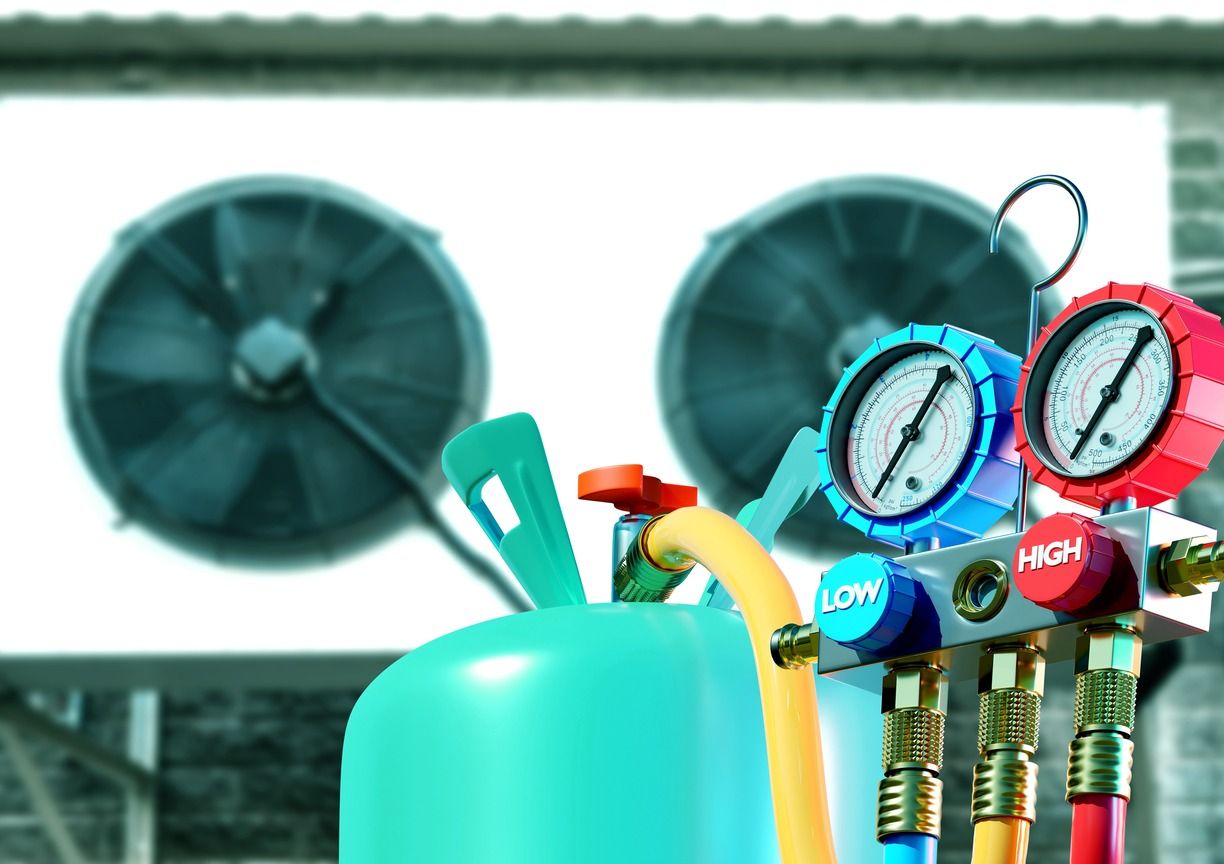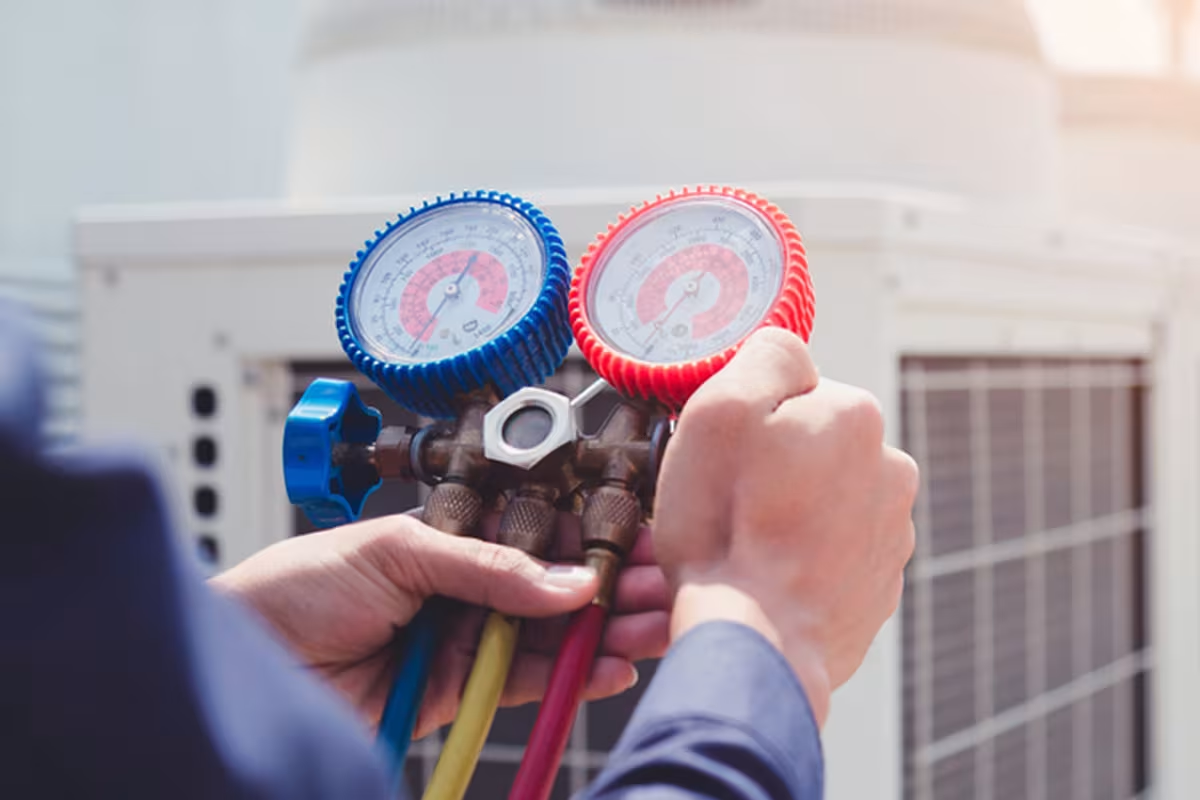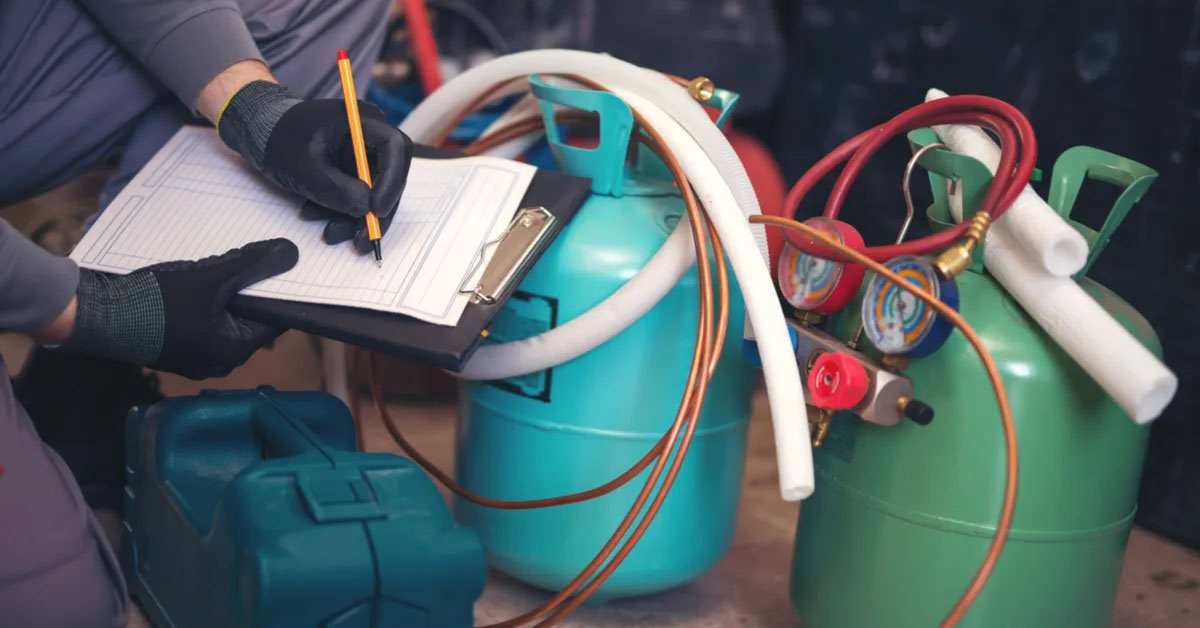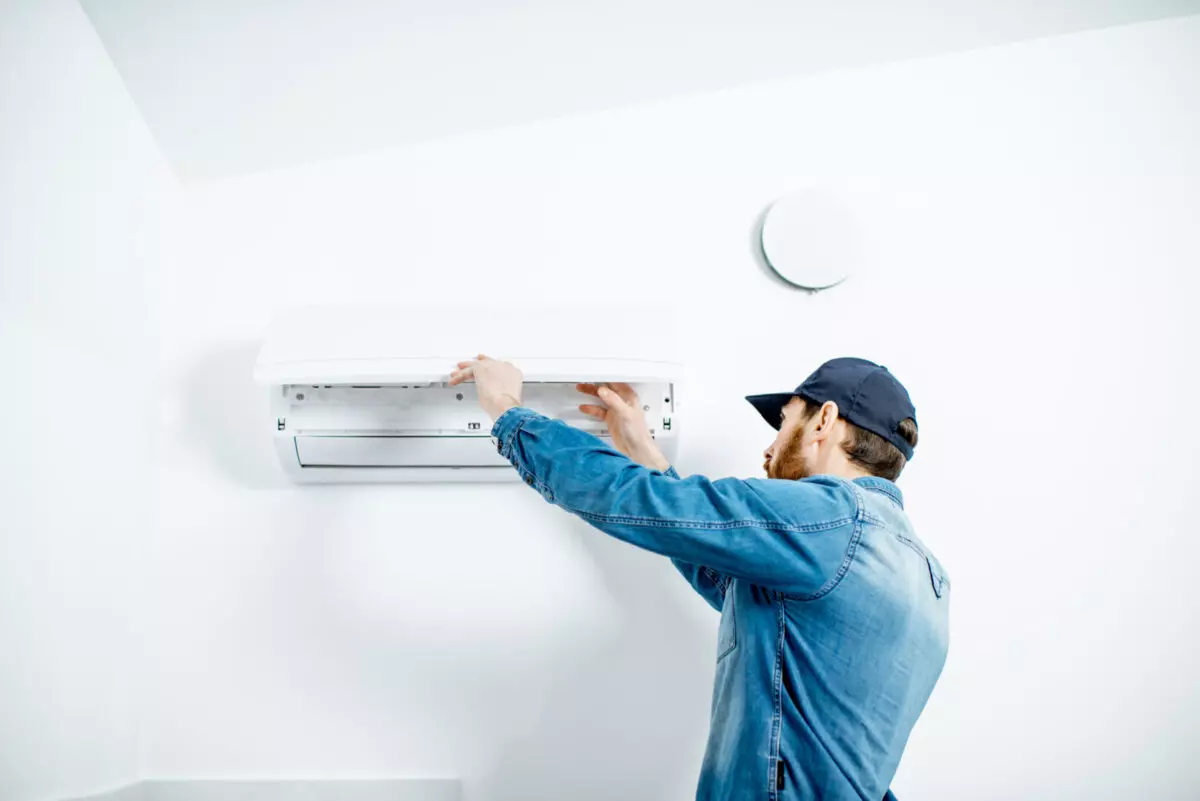Home>Home Maintenance>How To Tell If An Air Conditioner Is Leaking Freon
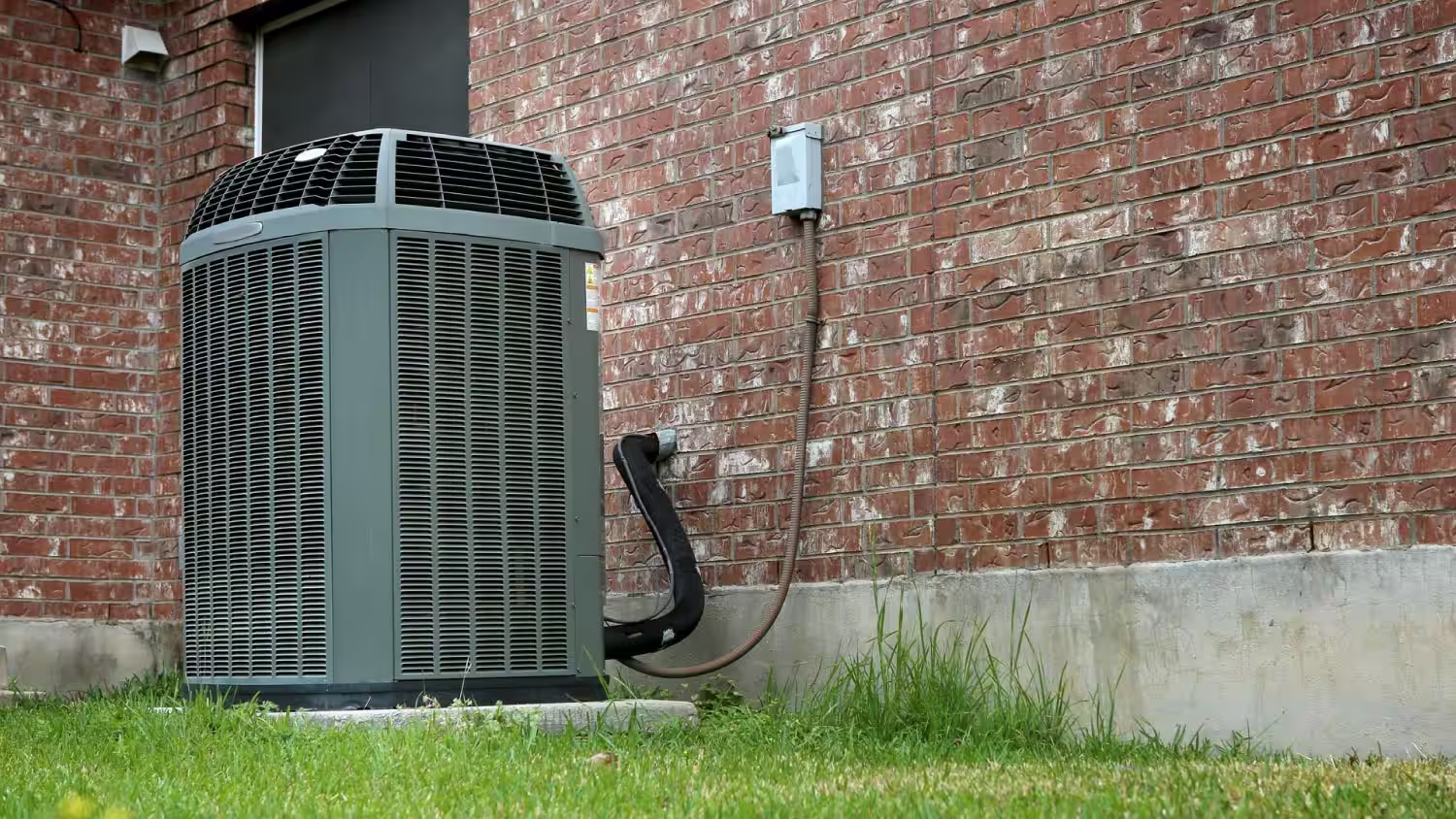

Home Maintenance
How To Tell If An Air Conditioner Is Leaking Freon
Modified: March 7, 2024
Learn how to determine if your air conditioner is leaking freon with these simple home maintenance tips.
(Many of the links in this article redirect to a specific reviewed product. Your purchase of these products through affiliate links helps to generate commission for Storables.com, at no extra cost. Learn more)
Introduction
Welcome to our guide on how to tell if an air conditioner is leaking Freon. As homeowners, it’s important to be aware of any issues with our cooling systems to ensure they operate efficiently and effectively. Freon, also known as refrigerant, is a vital component in air conditioners as it helps in the cooling process. However, if your air conditioner is leaking Freon, it can have negative effects on its performance and may even pose health risks.
In this article, we will discuss the signs that indicate a possible Freon leak in your air conditioner. By recognizing these signs early on, you can take necessary steps to address the issue and prevent further damage to your cooling system.
Key Takeaways:
- Keep an eye (and ear) out for signs of freon leakage in your air conditioner, such as warmer air, increased energy bills, frost formation, unusual sounds, and unpleasant odors. Prompt action can prevent further damage and maintain a comfortable home environment.
- If you suspect a freon leak, turn off your air conditioner, open windows for ventilation, and contact a licensed HVAC technician for professional help. Avoid DIY repairs and consider regular maintenance to keep your air conditioner in top shape.
What is Freon and why is it important in an air conditioner?
Freon is a type of refrigerant that is commonly used in air conditioning systems. It is a colorless, odorless gas that plays a crucial role in the cooling process of an air conditioner. Freon works by absorbing heat from the indoor air and releasing it outside, resulting in a comfortable and cool indoor environment.
One of the primary reasons why Freon is used in air conditioners is its ability to undergo a phase change from gas to liquid and vice versa at low temperatures. This property allows the refrigerant to absorb heat from the surrounding air when it evaporates into a gas, and then release the heat when it condenses back into a liquid. This continuous cycle of evaporation and condensation enables the air conditioner to cool the indoor air effectively.
Moreover, Freon is known for its stability and non-flammability, making it a safe choice for residential and commercial air conditioning systems. It has been widely used in the industry for many years, although newer and more environmentally friendly refrigerants are being introduced as alternatives to Freon due to its negative impact on the ozone layer.
Overall, Freon is a crucial component in air conditioners as it facilitates the heat transfer process and allows the system to cool the indoor air. Without Freon, an air conditioner would be unable to provide the desired level of cooling comfort.
Signs of freon leakage in an air conditioner
If you suspect that your air conditioner may be leaking Freon, it’s important to look out for certain signs. Freon leakage can not only affect the cooling efficiency of your air conditioner but can also have potential health hazards. Here are a few signs that indicate a possible freon leakage:
- Warmer air: If you notice that your air conditioner is not cooling your space as effectively as it used to, it could be a sign of freon leakage. Freon is responsible for absorbing heat and removing it from the air, so a shortage of refrigerant can result in reduced cooling capacity.
- Increased energy bills: Freon leakage can cause your air conditioner to work harder to achieve the desired temperature, leading to increased energy consumption. If you notice a sudden spike in your energy bills without any apparent reason, it’s worth checking for a possible freon leak.
- Ice/frost formation: Another telltale sign of freon leakage is the formation of ice or frost on the evaporator coils of your air conditioner. When there is a refrigerant leak, it disrupts the normal flow of Freon, causing the coils to freeze over. This can not only hinder the unit’s performance but can also cause damage to the system if left untreated.
- Hissing or bubbling sounds: When there is a freon leak, you might hear hissing or bubbling sounds coming from the air conditioner. This is caused by the refrigerant escaping through the leak. If you notice any unusual sounds coming from your unit, it’s important to investigate further.
- Unpleasant odor: Freon has a distinct smell, often described as sweet or acidic. If you detect an unusual odor coming from your air conditioner, it could be an indication of a freon leak. This odor may be more noticeable when you are close to the unit or when the air conditioner is running.
If you observe any of these signs, it is crucial to take immediate action to prevent further damage to your air conditioner and address the freon leakage. In the next sections, we will discuss how to visually inspect and listen for freon leakage, as well as steps to take if you suspect a leak.
Visual inspection for freon leakage
Performing a visual inspection is an essential step in identifying possible freon leakage in your air conditioner. It allows you to spot any visible signs of refrigerant leakage and take appropriate action. Here are some steps to follow for a visual inspection:
- Turn off the air conditioner: Before starting the inspection, make sure to turn off your air conditioner and disconnect it from the power source. This is for your safety as well as to prevent any further leakage during the inspection.
- Check for oil stains: Freon often leaves behind an oily residue when it leaks from the air conditioner. Look for any oil stains or residue near the refrigerant lines, coils, or anywhere else around the unit. If you notice any oily spots or discoloration, it is a clear indication of a freon leak.
- Inspect the refrigerant lines: The refrigerant lines are responsible for transporting the Freon throughout the air conditioning system. Carefully examine these lines for any signs of damage, such as cracks, holes, or corrosion. Even a small puncture can lead to refrigerant leakage, so be thorough in your inspection.
- Check the evaporator coils: The evaporator coils play a crucial role in the heat exchange process. Inspect the coils for any signs of ice or frost accumulation, as this can indicate a refrigerant leak. Additionally, look for any visible damage or corrosion on the coils.
- Inspect the condenser unit: The condenser unit is located outside and is responsible for releasing the heat collected from the indoor air. Check the condenser unit for any signs of refrigerant leakage, such as oily spots or residue. Also, ensure that the unit is free from any obstructions, such as leaves or debris, that may hinder its performance.
If you detect any visible signs of freon leakage during the inspection, it is recommended to seek professional help. HVAC technicians have the expertise to diagnose the issue, repair any leaks, and recharge the refrigerant if needed. They can also perform a more thorough inspection to ensure there are no other underlying issues with your air conditioner.
Remember, it’s crucial to address freon leakage promptly to prevent further damage to your air conditioner, improve its performance, and mitigate any potential health risks associated with refrigerant exposure.
Listening for unusual sounds
Aside from conducting a visual inspection, listening for unusual sounds can also help you determine if your air conditioner is leaking freon. Certain sounds can indicate a refrigerant leak and should not be ignored. Here are some sounds you should be attentive to during your investigation:
- Hissing or bubbling: One of the most common signs of a freon leak is a hissing or bubbling sound coming from the air conditioner. This noise is caused by the refrigerant escaping through the leak. If you hear this sound, it is an indication that there might be a refrigerant leak that needs to be addressed.
- Gurgling: A gurgling sound coming from the air conditioner can also indicate a freon leak. This noise is typically a result of air bubbles passing through the refrigerant lines. If you notice a gurgling sound, it’s important to investigate further to identify the source of the leak.
- Whistling or squealing: While not directly related to freon leakage, a whistling or squealing sound coming from your air conditioner could indicate a problem with the refrigerant lines or a malfunctioning component. This can indirectly affect the circulation of freon. Therefore, if you hear these sounds, it’s advisable to have a professional technician inspect your unit for any potential issues.
- Loud banging or clanging: If your air conditioner is making loud banging or clanging noises, it could suggest a refrigerant leak. These sounds may be caused by loose or damaged components as a result of the pressure changes caused by the leaking freon. It’s important not to ignore these noises, as they can indicate a more severe issue that needs immediate attention.
When listening for unusual sounds, it’s important to be patient and conduct your investigation in a quiet environment. Turn off any background noise to help you pick up on even subtle sounds that may indicate a freon leak.
If you are unsure about the sounds you are hearing or if you suspect a freon leak based on the sounds alone, it is recommended to contact a qualified HVAC technician. They can perform a thorough inspection to diagnose the problem and take the necessary steps to address any refrigerant leakage.
Remember, identifying a freon leak early can prevent further damage to your air conditioner and help maintain its efficiency and performance.
If you suspect your air conditioner is leaking freon, look for oil stains or a hissing sound near the unit. Also, if the air isn’t as cool as it should be, it could be a sign of a freon leak.
Decreased cooling efficiency as an indication
One of the key signs that your air conditioner may be leaking freon is a noticeable decrease in cooling efficiency. Freon is responsible for absorbing heat from the indoor air and releasing it outside, allowing for effective cooling. However, when there is a freon leak, the system cannot properly perform this heat exchange process, resulting in reduced cooling capacity. Here are some indicators of decreased cooling efficiency:
- Longer cooling cycles: If your air conditioner takes longer than usual to cool your space or struggles to reach the desired temperature, it could be a sign of a freon leak. Insufficient refrigerant levels hinder the cooling capacity, leading to extended cooling cycles.
- Poor air circulation: When there is a refrigerant leak, the air conditioner may struggle to circulate cool air effectively throughout the room. You may notice some areas in your space that are not being adequately cooled, resulting in uneven temperatures.
- Inability to maintain desired temperature: If your air conditioner constantly fails to maintain the temperature set on the thermostat, even with prolonged operation, it can be an indicator of a freon leak. Insufficient refrigerant levels can prevent the unit from achieving the desired temperature and maintaining it consistently.
- Increased run time: A freon leak forces the air conditioner to work harder to cool the space, resulting in more extended run times. The unit may run continuously or cycle on and off frequently in an attempt to meet the cooling demands, ultimately causing the system to operate less efficiently.
- Higher energy bills: When your air conditioner is struggling to cool your space due to a freon leak, it requires more energy to compensate for the refrigerant loss. As a result, you may notice a significant increase in your energy bills without any obvious explanation.
If you observe any of these signs of decreased cooling efficiency, it’s essential to investigate further and determine if a freon leak is the underlying cause. This will allow you to take appropriate measures to address the issue and restore optimal cooling performance.
Keep in mind that diagnosing a refrigerant leak requires professional expertise. Therefore, if you suspect a freon leak or experience decreased cooling efficiency, it is recommended to contact a licensed HVAC technician. They will be able to accurately diagnose the problem, repair any leaks, and recharge the refrigerant if necessary.
By promptly addressing a freon leak, you can ensure your air conditioner operates at maximum efficiency, provides optimal cooling comfort, and avoids more significant damage to the system.
Frost accumulation on the evaporator coils
Frost accumulation on the evaporator coils of your air conditioner can be a clear indicator of a freon leak. The evaporator coils play a crucial role in the cooling process by absorbing heat from the indoor air. However, when there is a refrigerant leak, the coils can become excessively cold and cause frost buildup. Here’s what you need to know about frost accumulation on the evaporator coils:
How does frost accumulate?
When there is a freon leak, the refrigerant level in the system decreases. As a result, the evaporator coils cannot properly absorb heat, causing them to become colder than they should be. When the cold coils come into contact with the warm, humid air, moisture condenses and freezes on the surface of the coils, resulting in frost buildup.
Signs of frost accumulation:
The presence of frost or ice on the evaporator coils of your air conditioner is a clear sign of a potential freon leak. Here are some signs to look out for:
- Visible frost on the coils: Check the indoor unit of your air conditioner and examine the evaporator coils. If you observe a layer of frost or ice on the coils, it is a strong indication of a refrigerant leak.
- Reduced airflow: Frost accumulation on the coils can restrict proper airflow, leading to decreased cool air circulation in your space. If you notice weakened airflow or uneven cooling in different areas of your home, it may be due to frost-covered coils.
- Longer cooling cycles: When frost builds up on the evaporator coils, it acts as an insulator, making it more difficult for the coils to absorb heat efficiently. As a result, your air conditioner may have to run for longer periods to achieve the desired temperature.
What should you do if you notice frost accumulation?
If you notice frost buildup on the evaporator coils of your air conditioner, it is crucial to take action to address the refrigerant leak. Here’s what you can do:
- Turn off the air conditioner: Switch off your air conditioner to prevent further frost accumulation and potential damage to the system.
- Call a professional: Contact a licensed HVAC technician to inspect and repair the freon leak. They will identify the source of the leak, repair any damaged components, and recharge the refrigerant.
- Allow the frost to thaw: Once the refrigerant leak is repaired, leave the air conditioner turned off for a few hours to allow the frost on the coils to thaw completely. This will prevent any water damage to the system when it starts operating again.
Preventing future frost accumulation:
To prevent frost accumulation on the evaporator coils, it is essential to address any freon leaks promptly and schedule regular maintenance for your air conditioner. Regular maintenance, including cleaning the coils and checking for refrigerant leaks, can help ensure the optimal performance of your cooling system.
If you notice frost accumulation on the evaporator coils of your air conditioner, it is crucial not to ignore it. Addressing the freon leak and resolving the issue will restore the cooling efficiency of your air conditioner and prevent further damage to the system.
Unpleasant odor coming from the air conditioner
If you detect an unpleasant odor emanating from your air conditioner, it could be a sign of a freon leak or another issue within the system. Freon, also known as refrigerant, has a distinct odor that is often described as sweet or acidic. When there is a refrigerant leak, that odor may become more pronounced. Here’s what you need to know about an unpleasant odor coming from the air conditioner:
Causes of the odor:
The presence of an unpleasant odor can indicate various issues with your air conditioner, including a freon leak or microbial growth. Here are a few possible causes:
- Freon leak: Freon has a distinct smell that may become noticeable when there is a refrigerant leak. If you detect a sweet or acidic odor around your air conditioner, it’s essential to investigate further to determine if there is a freon leak.
- Microbial growth: Over time, moisture can accumulate in the air conditioner’s condensate drain line or evaporator coils, providing a breeding ground for mold, mildew, or bacteria. These microorganisms can produce unpleasant odors that are often described as musty or rotten.
- Dust or debris: Accumulated dust, dirt, or other debris in the air conditioner’s ductwork, filters, or coils can lead to unpleasant odors. When the system operates, the circulation of air can carry these particles, resulting in an unpleasant smell.
Identifying the odor:
Identifying the specific odor coming from your air conditioner can help pinpoint the underlying issue. Here are some characteristics of different odors:
- Sweet or acidic odor: As mentioned earlier, a sweet or acidic smell may indicate a freon leak. If you notice this distinct odor near your air conditioner, it’s crucial to address the potential refrigerant leakage promptly.
- Musty or rotten odor: A musty or rotten smell is often associated with microbial growth, such as mold or mildew. If you detect this odor, it’s important to investigate the air conditioner’s ductwork, filters, or evaporator coils for signs of microbial contamination.
- Dusty or dirty odor: If your air conditioner emits a dusty or dirty smell, it could be due to accumulated dust or debris in the system. Regular cleaning and maintenance can help eliminate this odor and improve indoor air quality.
What to do if you notice an unpleasant odor:
If you detect an unpleasant odor coming from your air conditioner, follow these steps:
- Inspect for visible signs: Conduct a visual inspection of your air conditioner, including the refrigerant lines, coils, and drain line, for any visible signs of leakage, mold, or microbial growth. If you notice any issues, it’s best to contact a professional HVAC technician for assistance.
- Clean or replace the air filters: Dirty or clogged air filters can contribute to unpleasant odors. Clean or replace the air filters according to the manufacturer’s instructions to maintain a healthy indoor environment.
- Schedule professional maintenance: Regular maintenance by a qualified technician can help address any issues within your air conditioning system, including refrigerant leaks and microbial growth. They can detect and repair any leaks, clean the components, and ensure your air conditioner operates efficiently.
It’s important not to ignore any unusual odors coming from your air conditioner, as they might be indicative of underlying problems that require attention. By addressing these issues promptly, you can maintain a comfortable and healthy indoor environment.
Steps to take if you suspect freon leakage
If you suspect that your air conditioner may be leaking freon, it’s crucial to take immediate action to address the issue. Freon leakage not only affects the cooling efficiency of your air conditioner but can also pose health risks. Here are the steps you should take if you suspect a freon leak:
- Turn off the air conditioner: As soon as you suspect a freon leak, turn off your air conditioner and disconnect it from the power source. This will prevent further damage and potential health hazards.
- Open the windows for ventilation: Freon can be harmful if inhaled in large quantities. To ensure adequate ventilation, open windows and doors in the space where the air conditioner is located. This will help dissipate any leaked refrigerant and reduce the concentration in the air.
- Do not touch the refrigerant: Freon is a chemical compound that can cause skin irritation and other health issues if directly exposed to the skin. Avoid touching any visible refrigerant or attempting to handle it yourself. Leave it to trained professionals.
- Contact a licensed HVAC technician: It’s important to seek professional help to address a freon leak. Contact a licensed HVAC technician who specializes in air conditioning systems. They have the knowledge and expertise to diagnose the issue, locate the source of the leak, and perform necessary repairs.
- Do not attempt DIY repairs: While it may be tempting to try fixing the freon leak yourself, it is strongly advised against doing so. Refrigerant systems are complex and require specialized equipment and training to handle. Improper handling can cause further damage or even lead to personal injury.
- Follow technician’s recommendations: Once the HVAC technician inspects your air conditioner and determines the extent of the freon leakage, they will recommend appropriate actions. This may include repairing the leak, replacing damaged components, or recharging the refrigerant. Follow their recommendations to ensure the proper functioning of your air conditioner.
- Consider regular maintenance: To prevent future freon leaks and ensure the optimal performance of your air conditioner, consider scheduling regular maintenance. Routine inspections can help identify and address potential issues before they become major problems.
Remember, freon leakage should be taken seriously and addressed by professionals. By following the steps outlined above, you can mitigate the risks associated with a freon leak and restore the proper functioning of your air conditioner.
Read more: How To Find A Leak In An Air Conditioner
Conclusion
Knowing how to identify a freon leakage in your air conditioner is essential for maintaining its efficiency and ensuring a comfortable living environment. Freon, or refrigerant, is a crucial component in the cooling process of an air conditioner. When there is a freon leak, it can not only impact the performance of your AC but also pose health risks.
In this guide, we discussed several signs that can indicate a possible freon leak, including warmer air, increased energy bills, frost accumulation on the evaporator coils, unusual sounds, and unpleasant odors. By being aware of these signs, homeowners can take prompt action and prevent further damage to their air conditioning systems.
If you suspect a freon leak, it is vital to conduct a visual inspection, listening for unusual sounds, and, if necessary, seeking professional help. HVAC technicians have the knowledge and expertise to diagnose and repair freon leaks, as well as provide regular maintenance to keep your air conditioner in optimal condition.
Remember, treating a freon leak promptly is crucial not just for the health of your air conditioner, but also for your own well-being. Freon leakage can affect the cooling efficiency of your system, resulting in increased energy bills and discomfort. With regular maintenance and prompt attention to freon leaks, you can enjoy a cool and comfortable living environment while prolonging the lifespan of your air conditioner.
So, if you notice any signs of freon leakage like decreased cooling efficiency, frost accumulation, or unpleasant odors, don’t hesitate to take the necessary steps to address the issue. Your air conditioner will thank you, and you’ll be able to enjoy cool, crisp air all summer long.
Frequently Asked Questions about How To Tell If An Air Conditioner Is Leaking Freon
Was this page helpful?
At Storables.com, we guarantee accurate and reliable information. Our content, validated by Expert Board Contributors, is crafted following stringent Editorial Policies. We're committed to providing you with well-researched, expert-backed insights for all your informational needs.
